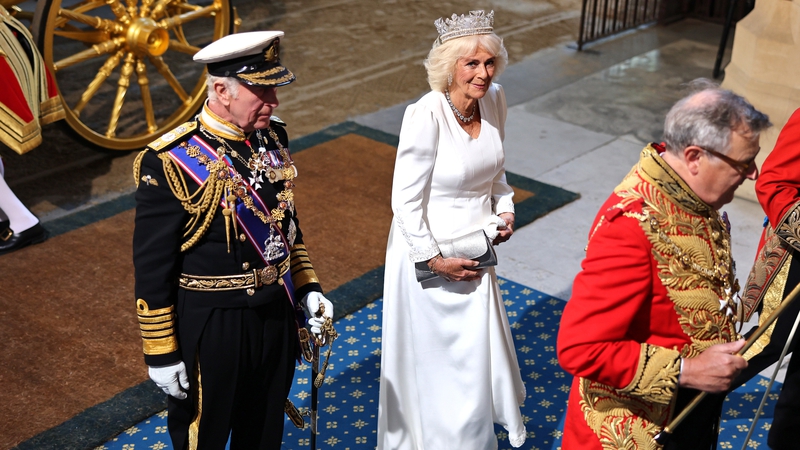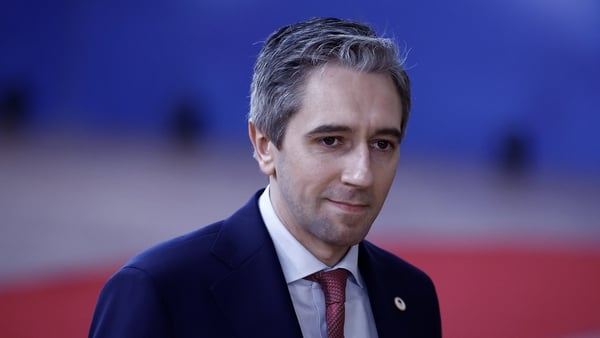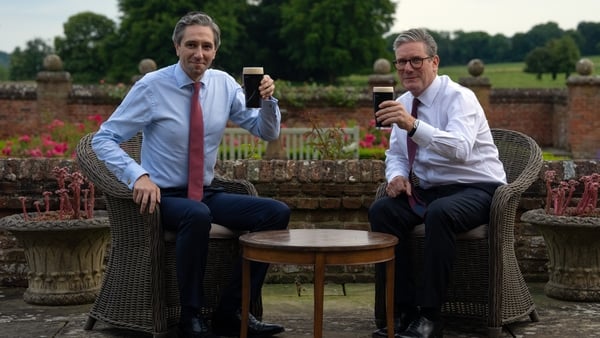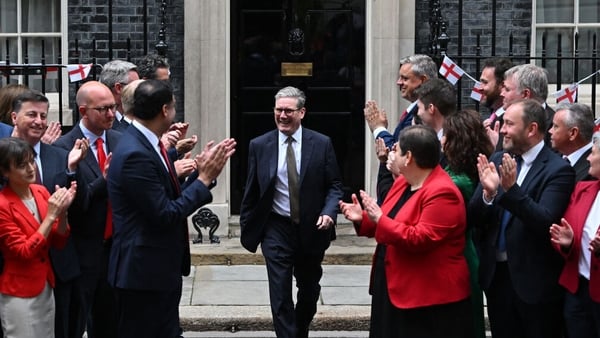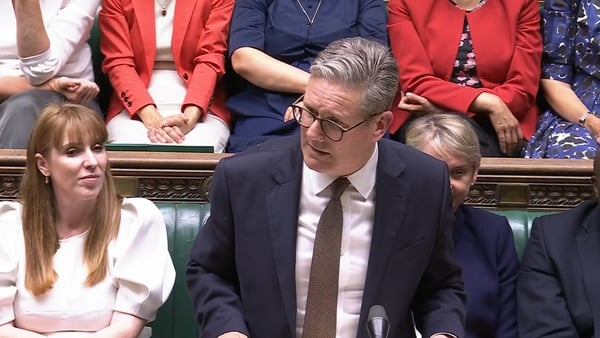The British government has committed to repealing and replacing the Northern Ireland Legacy Act.
During the official state opening of the UK parliament, King Charles told those gathered that "in consultation with all parties, measures will be brought forward to begin the process of repealing and replacing the Northern Ireland (Legacy and Reconciliation) Act 2023".
The scrapping of the law was already committed to in the Labour Party manifesto.
Ireland launched an interstate case against the UK government in protest over the controversial Legacy Act.
It is understood that the Irish Government wants to see what British Prime Minister Keir Starmer's government replaces the act with, before a decision is taken to withdraw its case.
We need your consent to load this rte-player contentWe use rte-player to manage extra content that can set cookies on your device and collect data about your activity. Please review their details and accept them to load the content.Manage Preferences
Tánaiste and Minister for Foreign Affairs Micheál Martin welcomed the British government's decision.
"I have always been clear that this act, as it stands, is not fit for purpose," he said.
Mr Martin said that he looked forward to working with Northern Ireland Secretary of State Hilary Benn as "he takes this forward in the months ahead".
"The needs of victims and full compliance with the ECHR (European Court of Human Rights) must be at the heart of this revised approach," he said.
Taoiseach Simon Harris and Mr Starmer are due to meet this evening for a bilateral at Chequers, where it is expected that the Legacy Act will likely be discussed.
Also within the speech, Mr Starmer set out plans to tear up red tape around planning, reform the economy and restore trust in politics in a sweeping set of changes.
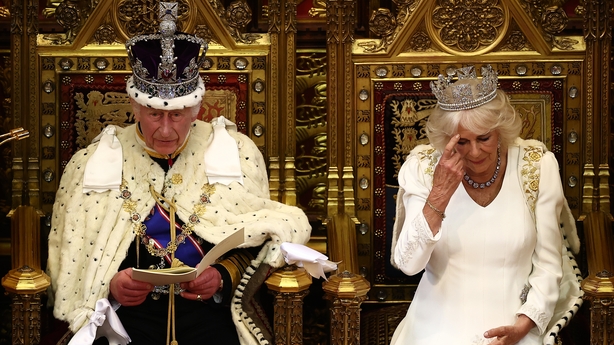
The prime minister vowed to "fix the foundations of this nation for the long-term" with a programme containing 40 proposed pieces of legislation.
He said change will not happen overnight but his plan would "unlock growth and take the brakes off Britain".
After a divisive election campaign, Mr Starmer said "the fight for trust is the battle that defines our political era" and only delivering real change can "begin to restore people's faith that politics can be a force for good".
We need your consent to load this rte-player contentWe use rte-player to manage extra content that can set cookies on your device and collect data about your activity. Please review their details and accept them to load the content.Manage Preferences
In his introduction to the government's programme, he said: "Rebuilding our country will not happen overnight. The challenges we face require determined, patient work and serious solutions, rather than the temptation of the easy answer.
"The snake oil charm of populism may sound seductive, but it drives us into the dead end of further division and greater disappointment."
The speech, delivered in the House of Lords by the king with all the traditional pomp and pageantry, includes many of the policies championed in Labour's manifesto.
King Charles told members of the House of Commons and the House of Lords that the government's programme would be "based upon the principles of security, fairness and opportunity for all", adding that his ministers would "get Britain building".
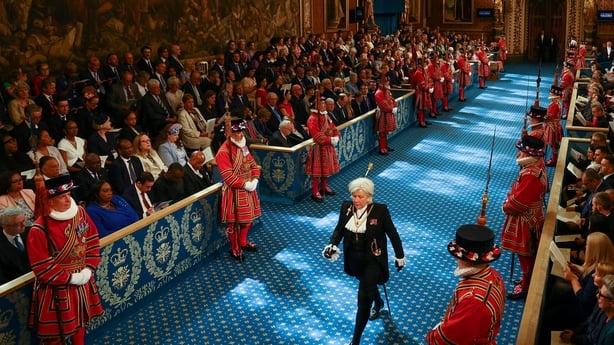
The day's proceedings kicked off at around 9:30am when royal bodyguards ritually searched the basement of the Palace of Westminster for explosives, a legacy of the failed attempt by Catholics to blow up parliament in 1605.
Footage showed King Charles leaving Buckingham Palace, escorted by mounted cavalry, en route to the Houses of Parliament.
Tradition dictates that an MP is ceremonially held "hostage" in the palace to ensure the king's safe return.
A parliamentary official, known as Black Rod, had the door of the lower chamber House of Commons slammed in their face, a tradition that symbolises parliament's independence from the monarchy.
MPs followed Black Rod to the upper chamber, where King Charles, as head of state, delivered the speech.
